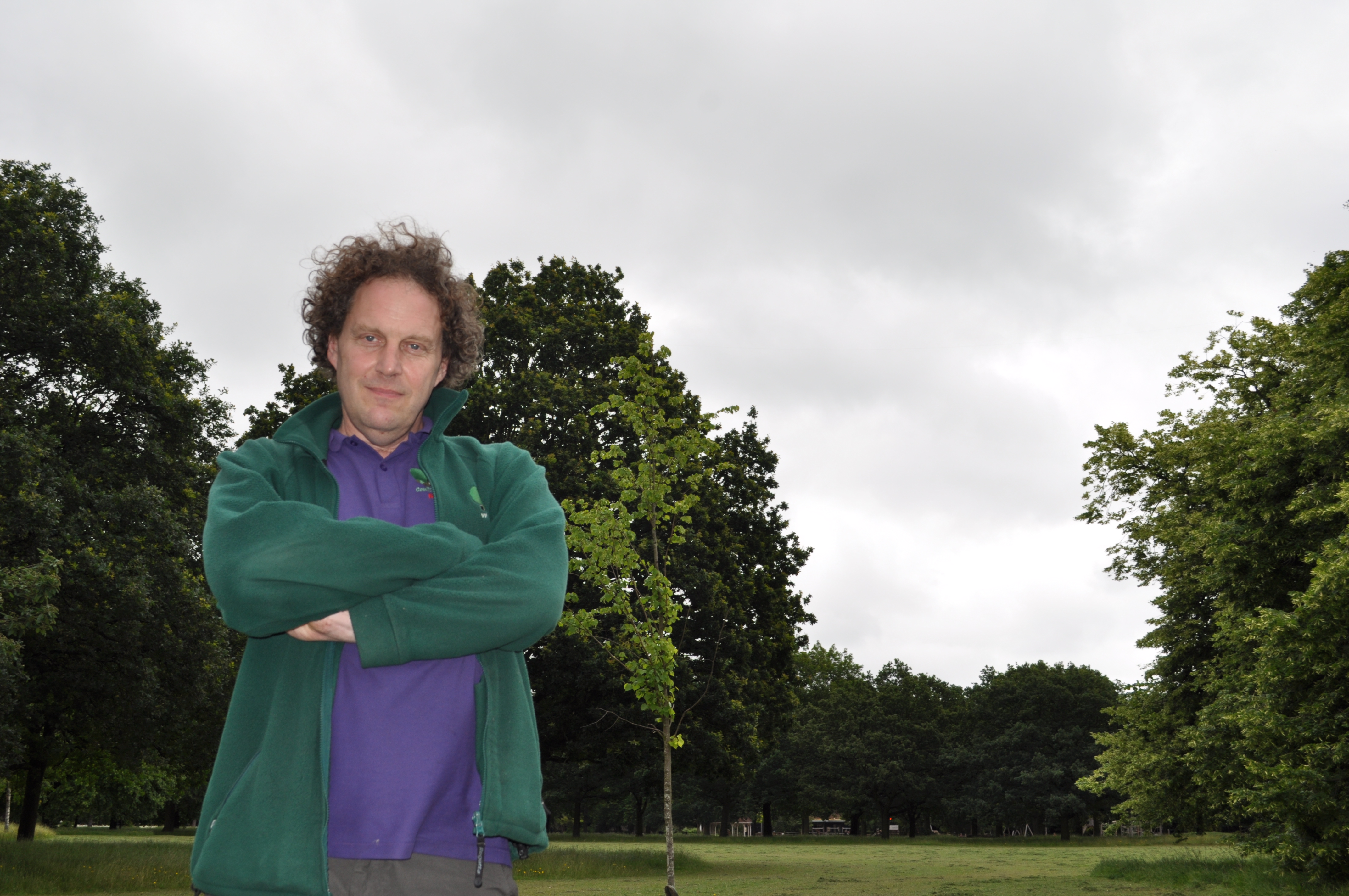James Morton is one of the six park rangers who look after our borough’s open spaces, and work to preserve the plants and wildlife that call them home. They are looking for volunteers to help with their conservation work.
James has been working to improve our parks and green spaces for more than eight years. The community aspect of his role keeps him motivated, particularly when people stop and tell him the positive changes they have noticed.
Part of a team of six rangers, James looks after around 20 parks, including the Manor House Grounds in Southall, Dormers Wells Moated Manor and the Hanwell Meadows and spends most of his time out in the borough’s parks and open spaces keeping up with current issues. To cover his patch, he prefers to cycle the 15-mile route which gives him the opportunity to talk to visitors.
From rescuing a swan that was unwell to dealing with anti-social behaviour in parks, there is much more to being a park ranger than you might think and no two days are the same. James tells us more below.
What drove you to become a ranger?
“I started my career with the London Wildlife Trust, but spent many years in between as a beekeeping specialist. I’ve always loved the outdoors and from childhood was fascinated by wildlife, which lead to my training as a zoologist. After years working in beekeeping, mainly on the diseases of bees, I felt like taking on a new challenge and also going back to some of my earlier passions.”
What does a typical day look like as a park ranger?
“The work of a ranger is extremely varied so there is no such thing as a typical day. We generally have a good idea of what we hope to do but are frequently deflected by unexpected incidents and emergencies. You have to be able to be flexible and decide what the current priority is.
“A large strand of my work is nature conservation – managing and improving parks as wildlife habitat. Generally about two days a week I’m doing some practical nature conservation work. At the moment we are dealing with harmful invasive weeds on the banks of the River Brent. Other times I might be out with my chainsaw managing woodland. It’s physically tough work but very satisfying.
“I also spend a lot of time working on interaction between communities and open space. For instance: working with homeless rough sleepers and street drinkers, dealing with issues of anti-social behaviour, enabling outdoor education for children, getting ideas for parks improvements, helping community orchard groups and so on.”
What is the best part about being a park ranger?
“I suppose when I started the job I expected to mainly enjoy working with wildlife. But now I find it’s the community angle. We’ve been doing some great project work in partnership with residents recently and it’s enormously satisfying when people stop me on my bike to tell me about the positive changes they have noticed.”
What is the most challenging aspect of your role?
“I would say that the enforcement work we can be pretty challenging. Rangers have to be able to respond to illegal and anti-social behaviour we come across. I don’t know if anyone can teach you this, but through experience I’ve learned to deal with some pretty tough situations. I think you become very good at assessing people’s body language.”
What is the strangest thing that has happened during your time as a ranger?
“One strange situation that comes to mind is when I was called to rescue a swan that was unwell and at risk of being attacked by dogs. I managed to pick it up and carry it down the canal towpath under my arm to my van. I can still remember the horrified expressions on the faces of people walking the other way.”
What do you like to do in your spare time?
“I enjoy playing guitar with a large local jazz band: the Jazz Mondays. We’ve been playing music together each week for about the past 15 years and often play gigs and in festivals. I’m also very slowly working on my boat: a 20metre Dutch sailing barge built in 1906 – although I sometimes think I may have bitten off more than I can chew with this project.”
Are you interested in nature conservation?
Ealing’s park rangers run task days when volunteers can come along and work on a current conservation project. They regularly take place on Tuesdays (although there may be occasional weekend workdays) and tasks include woodland or meadow management, pond care, fencing or footpath work, hedge planting or tree planting.
Rangers also organise volunteer days up and down the River Brent, clearing rubbish and undertaking conservation projects to benefit wildlife along the river.
You can join the rangers if you have free time on a Tuesday. It is a great opportunity to learn new skills, meet new friends, keep fit, enjoy the great outdoors and do something positive to help your local environment.
Email parks@ealing.gov.uk if you are interested in finding more about volunteering on nature conservation days.







